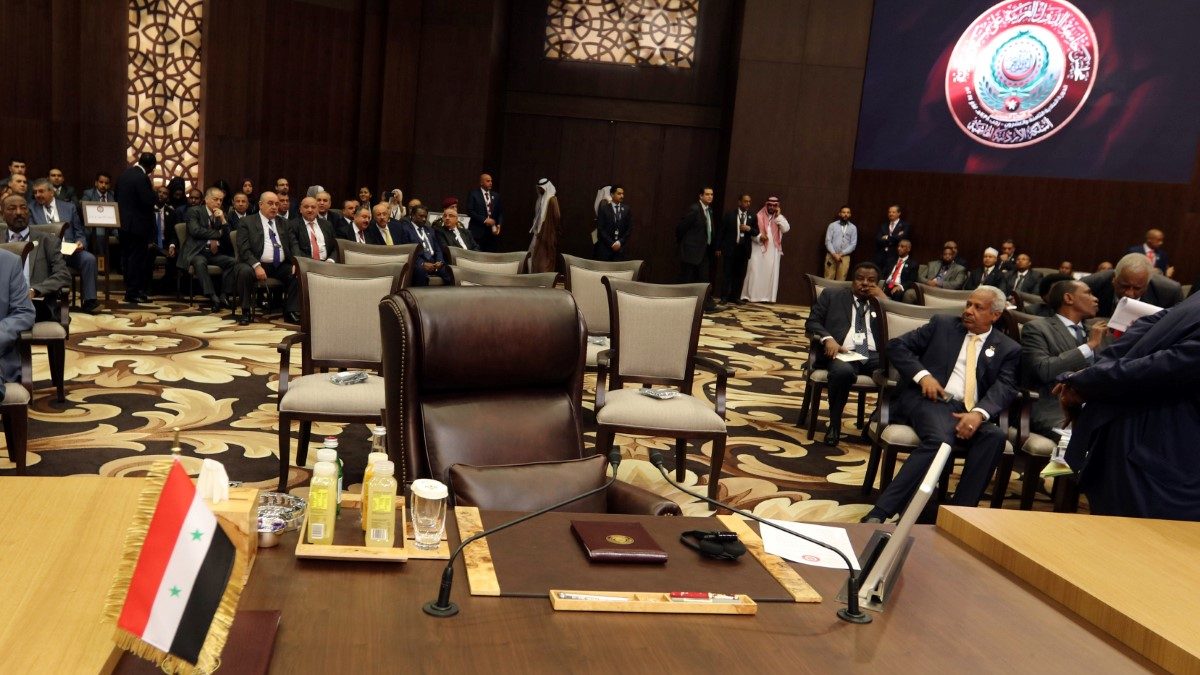The Arab League has said that the membership of Syria will remain suspended, following reports that the country was poised to be readmitted to the pan-Arab body.
Arab League Secretary-General Ahmad Aboul Gheit said on Saturday that the necessary procedures for Syria’s return to the Arab League have not yet been fulfilled.
In a joint press conference with the Kuwaiti Foreign Minister, Gheit said that Syria’s rejoining of the Arab League needs to be “preceded by deliberations and consultations, the presentation of a draft resolution … and what is required of Syria”.
He added that the Syria issue was discussed during the meeting of Arab ministers in Kuwait on Saturday, but “no mention was made of returning Syria’s membership to the Arab League”.
The Arab League suspended Syria’s membership in the Arab League in 2011 after the regime’s bloody crackdown on peaceful protests.
Read Also: The Crisis in Syria is Not Over
Arab diplomats have been working behind closed doors to readmit Syria to the organization, according to reports.
Cairo and Abu Dhabi have publicly called for Syria’s readmission into the body, while countries like Saudi Arabia and Qatar have signaled their opposition to the move.
The movement towards Syria’s rejoining of the Arab League comes as Arab states normalize relations with the country on a bilateral basis.
On Monday, Oman’s Foreign Minister Sayyid Badr Albusaidi arrived in Damascus.
Jordan’s King Abdullah II received a call from Syria’s President Bashar al-Assad in October, the first contact between the two leaders since the revolution started.
The UAE’s Foreign Minister Abdullah bin Zayed visited Damascus in November, which analysts described as a sign of warming ties between the two countries.
Despite a thaw in relations between Syria and its Arab neighbors, the U.S. has insisted that it will not normalize ties with Damascus nor will it encourage its regional allies to do so.
This article was edited by The Syrian Observer. The Syrian Observer has not verified the content of this story. Responsibility for the information and views set out in this article lies entirely with the author.


